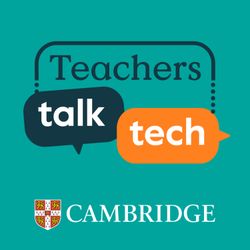Latest episode
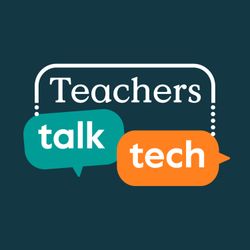
5. Educational sustainability: balancing technology and the human element
26:27||Season 3, Ep. 5We often discuss the importance of teaching sustainability, but what about educational sustainability? What does it mean, and how is it different?In this episode, we delve into the various aspects of educational sustainability through an inspiring conversation with André Hedlund and Andrea Vinkler. They will help us reflect on how to place the human element at the heart of the classroom while balancing it with the latest technological developments.This episode covers:What educational sustainability means. Differences from sustainability in general.The human element in the face of technology advancements.The impact of technology on the way students learn.How to bring educational sustainability into the curriculum and the classroom.📝Show notes:Cambridge Life Competencies framework.Desirable difficulties theory, by Robert Bjork.Dweck, C. (2006). Mindset: The new psychology of success. Random House.Haidt, J. (2024). The Anxious Generation. Allen Lane.Desmurget, M. (2022). Screen Damage: The Dangers of Digital Media for Children. Polity.Sustainability framework for ELTSustainability in ELT - downloadable white paperTeachers’ perspectives on the impact of generative AI in ELT - downloadable white paper🧠To learn more:In ‘Chá Pedagógico - Mobile Phones: BANNED!’ André discusses the impact of technology on learning.Learning Cosmos is a platform created by André for teacher training based on the Sciences of Learning.Instagram: @thelearningcosmosYoutube: @learningcosmos🎧 Discover more episodes on: https://camengli.sh/3nGsp3b
More episodes
View all episodes
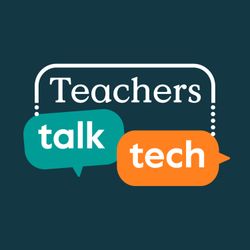
4. Teaching with short-form videos
24:00||Season 3, Ep. 4In today's digital age, platforms like TikTok, Instagram, or YouTube are capturing students' attention with videos up to few minutes long. So, how can teachers use these short-form videos to keep their students engaged inside the classroom while also supporting language learning?Don’t miss this exciting episode where María G. Durán and Katie La Storia share their experiences on introducing short-form videos into the class. From improving listening comprehension and pronunciation, to developing presentation skills and confidence through scripting and storytelling, this episode has everything you need to know! We'll cover the following topics:What is a short-form video?Benefits of short-form videos in language educationPedagogical applications of short-form videosIntegrating short-form videos into the classroomEmpowering students through the creation of short-form videosHow can teachers start recording their own short-form videos?Links and references:Learn English with Cambridge YouTube channelLights, camera, English! Video activities to engage your studentsJust press play! Videos and digital games with young learnersWay beyond just watching videos: when learning and entertainment meet through YouTubeDownloadable resources for Spanish-speaking teachers looking for inspiration for their classesMaría’s social media channels, where teachers and learners can find all the videos categories María mentions on the podcast:Instagram: @mariaspeaksenglishTikTok: @mariaspeaksenglishFacebook: Maria Speaks EnglishYouTube: https://www.youtube.com/@mariaspeaksenglishDiscover more episodes on: https://camengli.sh/3nGsp3b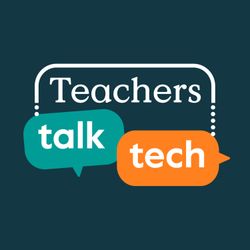
3. AI chatbots in the language classroom
26:38||Season 3, Ep. 3Welcome to another exciting episode of Teachers Talk Tech! In this episode Nick Peachey and Ann-Marie Murphy discuss the transformative role of AI chatbots in education, reflecting on their benefits and challenges.Tune in to explore how chatbots can provide instant feedback, assist with lesson planning, and support both students and teachers inside and outside the classroom. This episode covers:Introduction to AI chatbotsBenefits of using chatbots in Language LearningBenefits of using chatbots in Language TeachingThe role of chatbots in providing emotional supportResources for learning to use AI chatbotsChallenges and considerations when using AI chatbotsStarting points for implementing AI chatbots in the classroomLinks and references:Generative AI and Language Education: opportunities, challenges and the need for critical perspectivesExploring the impact of generative AI on Language Education: insights from teachersThe role of AI in Language Learning: research evidence and strategies for successGenerative AI and the language classroomAI and ethics in educationMy AI teacher sample lesson planPeachey, N. (2023). ChatGPT in the Language Classroom. PeacheyPublications LtdPeachey, N. (2024). AI activities and resources for English language teachers. British CouncilListen to more episodes on: https://camengli.sh/3nGsp3b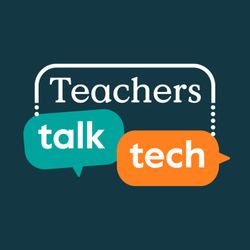
2. Employability skills
33:10||Season 3, Ep. 2What are employability skills and why are they crucial for the future workplace? How can language teachers incorporate them in the class? Join us in this episode of Teachers Talk Tech as we explore the essential soft skills for work, from emotional and leadership skills to decision-making, critical thinking and teamwork.Our special guests, Craig Thaine and Cecília Lemos Harmer, share their experience and tips on how language teachers can support the development of these skills.This episode covers:Employability skills in language teachingPractical examples and activitiesDigital literacy and technologyTips for teachers on how to develop their own employability skillsThe future of the workplaceLinks and references:The Cambridge Employability Skills Framework documentThe research project Craig refers to in the conversationListen to more episodes on: https://camengli.sh/3nGsp3b
1. The future of assessment
39:41||Season 3, Ep. 1In this episode of Teachers Talk Tech, we delve into the world of evolving language assessment with special guests Andreas Schleicher from OECD and Fran Woodward of Cambridge. They discuss how technology is transforming the way we measure language skills, moving away from traditional tests towards a more holistic approach.This episode explores:How technology allows us to assess real-life communication skills.The shift from fixed tests to ongoing learning evaluation.The exciting possibilities for personalised language learning.Tune in and discover how technology is revolutionising the way we learn and assess languages.
5. Innovation in teaching
15:16||Season 2, Ep. 5Innovation is such a buzz word. In this episode, we’ll explain what innovation is when it comes to education. We’ll also explore how teachers can innovate, especially if working in constrained environments. We’ll reflect on the role of schools and managers in supporting teacher innovation, and look at some examples of everyday innovation for teachers to try out.Explore more:Mediating Innovation through Language Teacher EducationEnhancing learners’ critical thinking skills with AI-assisted technologyTop 5 EdTech trends for 2023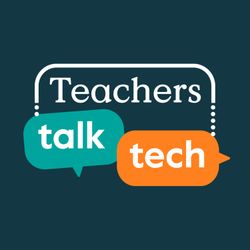
4. Game-based learning
16:40||Season 2, Ep. 4What is game-based learning and how is it different from gamified learning? In this episode, we’ll explore the benefits of games in language learning, and we'll debunk some of the common myths! Find out how to integrate games into your classes and help your students develop their game-based learning skills.Explore more:Game on, not game over: Using video games to teach EnglishMinecraft Adventures in English with Cambridge
